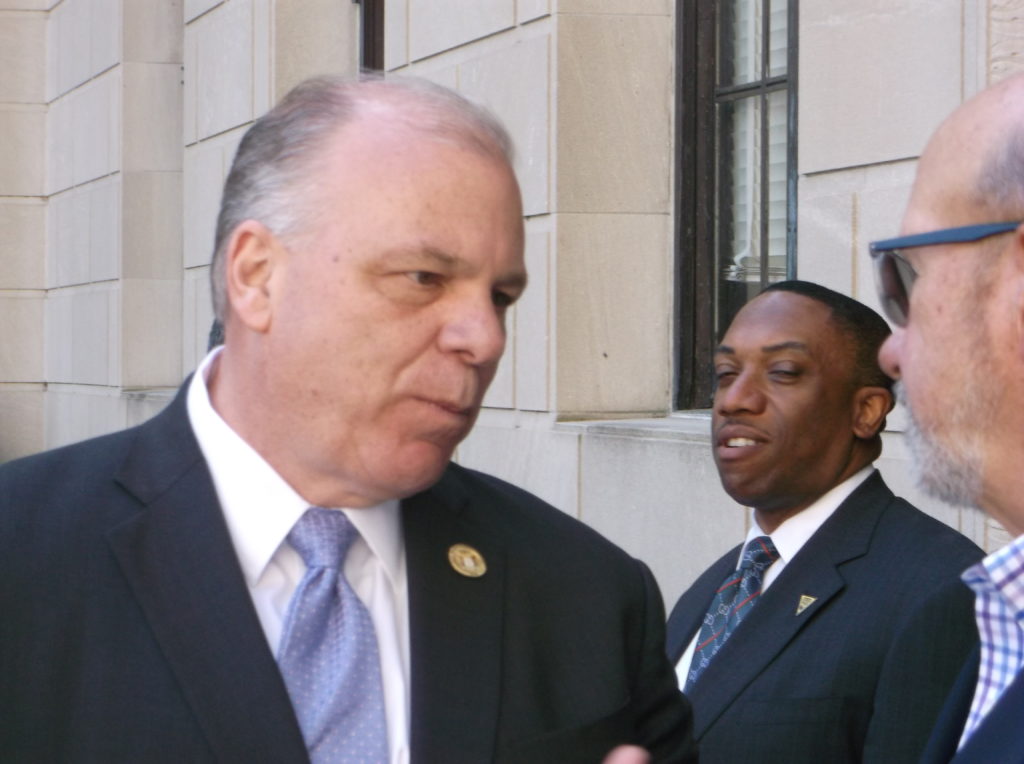Bill Legalizing Adult-Use Marijuana Gains Committee Approval

Bill Legalizing Adult-Use Marijuana Gains Committee Approval
TRENTON – Legislation that would legalize adult use marijuana in New Jersey gained the approval of a Senate committee today. Sponsored by Senator Nicholas Scutari and Senate President Steve Sweeney, the bill, S-2703, would legalize the possession and use of limited amounts of marijuana for adults 21 and older and create an organizational and regulatory system to oversee the operations of the business.
“Marijuana prohibition has failed,” said Senator Scutari (D-Union). “It is time to end the detrimental effect these archaic drug laws are having on our residents and our state. This bill will create a strictly regulated system that permits adults to purchase limited amounts of marijuana for personal use. It will bring marijuana out of the underground market where it can be controlled, regulated and taxed, just as alcohol has been for decades.”
The bill was approved by the Senate Budget and Appropriations Committee with a vote of 7 – 4, with two abstentions. .
“Marijuana is already being sold and used but it is the dealers who are running the drug trade and they are selling marijuana that is sometimes laced with other products,” said Senator Sweeney (D-Gloucester/Salem/Cumberland). “We developed a plan that will put in place rules and regulations that allow for adult use cannabis in a responsible way. As a regulated product, legal marijuana will be safe and controlled.”
In addition to abolishing the criminal penalties that have been disproportionately imposed on minority communities, the bill includes other “social justice” reforms, including the expungement of past convictions, the designation of “impact zones” with preferences for new cannabis businesses in communities most adversely affected by the “war on drugs,” and incentives for disabled veterans and local residents.
Ten states and Washington, D.C. have legalized recreational marijuana and public support for the effort is at an all-time high, with 60 percent of people in the United States favoring legal recreational marijuana. The bill builds on the successes of other states and incorporates the lessons learned from their experiences.
Senator Scutari said that taxing marijuana could generate millions of dollars and the industry could create thousands of jobs in sales, production and related services. Marijuana products will be taxed at 12 percent by the state with an additional two percent by host municipalities, if they choose.
Legalization would eliminate the detrimental effect that a marijuana arrest can have on residents’ lives. It would free up millions of dollars spent each year on enforcement and it would end discriminatory enforcement. New Jersey spends an estimated $125 million a year on enforcement, according to a report by the American Civil Liberties Union. The report also found African-Americans are 2.8 times more likely in New Jersey to be arrested for marijuana possession than a Caucasian person, even though the rate of marijuana use is similar.
In 2016, New Jersey was the third in the nation in total marijuana arrests — after Texas and New York — and second only to Wyoming in marijuana arrest rate. In 2016, 32,263 people were arrested in New Jersey for marijuana possession, according to data from the FBI’s Uniform Crime Reporting program.
Colorado has benefited immensely from reallocating local police resources to other types of crime since marijuana-related arrests have plummeted. Officials have not seen an increase in adolescent use or reported a problem with cannabis-related DWIs and the downtowns in Denver and neighboring communities are clean and safe.
A local governmental entity may prohibit the operation of a cannabis establishment for a period of five years at a time, prohibit the consumption of non-smoking cannabis in a public place and other ordinances or regulations, including time, place and manner zoning restrictions.
The bill would allow for the immediate expungement of convictions for ant past acts that would no longer be a crime or offense under this bill. The expungement application fee of approximately $200 would be waived for past possession offenses. All pending possession cases would be dismissed and people currently incarcerated for marijuana possession would be released.
(Attached: Outline of the Legalization Bill)







